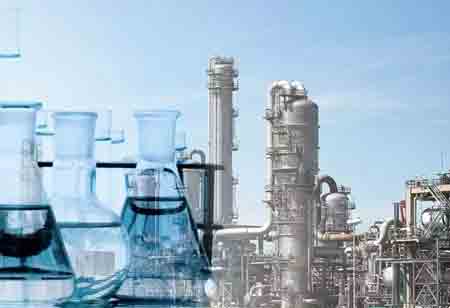Petrochemicals, a family of essential chemicals derived from petroleum and natural gas, form a fundamental building block in this industry.
FREMONT, CA: The chemical industry is the backbone of global innovation, driving advancements in numerous sectors that impact our daily lives. Petrochemicals, a family of essential chemicals derived from petroleum and natural gas, form a fundamental building block in this industry. This article explores the significance of petrochemicals in the world of Chemical Industry Insights, highlighting their applications, production processes, and their pivotal role in shaping modern civilization.
Understanding Petrochemicals
Petrochemicals are diverse chemicals derived from hydrocarbons found in crude oil and natural gas. These compounds serve as the raw materials for manufacturing an extensive range of products, from plastics and fibers to pharmaceuticals and fertilizers. The chemical industry relies heavily on petrochemicals for their abundance, versatility, and cost-effectiveness.
Key Petrochemicals and Their Applications
1. Ethylene: Ethylene is one of the most widely produced petrochemicals, serving as the foundation for various products, including polyethylene (used in packaging and plastics), ethylene oxide (used in detergents and antifreeze), and ethylene glycol (used in antifreeze and polyester production).
2. Propylene: Propylene is a crucial petrochemical used in the production of polypropylene (used in packaging, textiles, and automotive parts), acrylic fibers, and propylene oxide (used in foams, coatings, and detergents).
3. Benzene: Benzene serves as a key precursor in the manufacturing of numerous chemicals, including styrene (used in polystyrene plastics), phenol (used in resins and plastics), and aniline (used in dyes and pharmaceuticals).
4. Methanol: Methanol is a vital petrochemical used in the production of formaldehyde (used in resins and adhesives), acetic acid (used in vinegar and plastics), and methyl tert-butyl ether (used as a fuel additive).
Production of Petrochemicals
The production of petrochemicals involves complex processes such as steam cracking, catalytic reforming, and aromatics extraction. Steam cracking is a primary method to convert hydrocarbons into lighter olefins, including ethylene and propylene. Catalytic reforming is utilized to convert naphtha into higher-octane gasoline and benzene. Aromatics extraction further isolates valuable petrochemicals like benzene and toluene.
The Role of Petrochemicals in the Chemical Industry
1. Polymer Production: Petrochemicals are essential in producing polymers like polyethylene, polypropylene, and polystyrene, which are integral components of countless products in industries ranging from packaging to automotive.
2. Solvents and Chemical Intermediates: Petrochemicals serve as solvents in paint, adhesives, and pharmaceuticals, as well as intermediates in producing various chemicals used across industries.
3. Fertilizers and Agrochemicals: Petrochemicals produce nitrogen-based fertilizers and agrochemicals, contributing to increased agricultural productivity.
4. Pharmaceutical Industry: Petrochemical-derived chemicals are used to synthesize pharmaceuticals and active ingredients, aiding in the advancement of medical treatments.
Conclusion
In the realm of Chemical Industry Insights, petrochemicals stand as the foundation of innovation, enabling the creation of an array of essential products that enhance our lives and drive economic growth. Petrochemicals are a cornerstone in countless industries, from plastics and fibers to pharmaceuticals and fertilizers. As the chemical industry continues to evolve, the significance of petrochemicals will only grow, fostering further innovation and propelling humanity toward a more advanced and sustainable future.

